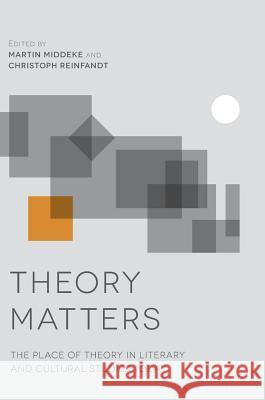Theory Matters: The Place of Theory in Literary and Cultural Studies Today » książka
topmenu
Theory Matters: The Place of Theory in Literary and Cultural Studies Today
ISBN-13: 9781137474278 / Angielski / Twarda / 2016 / 362 str.
Theory Matters: The Place of Theory in Literary and Cultural Studies Today
ISBN-13: 9781137474278 / Angielski / Twarda / 2016 / 362 str.
cena 443,82
(netto: 422,69 VAT: 5%)
Najniższa cena z 30 dni: 424,07
(netto: 422,69 VAT: 5%)
Najniższa cena z 30 dni: 424,07
Termin realizacji zamówienia:
ok. 22 dni roboczych
Bez gwarancji dostawy przed świętami
ok. 22 dni roboczych
Bez gwarancji dostawy przed świętami
Darmowa dostawa!











